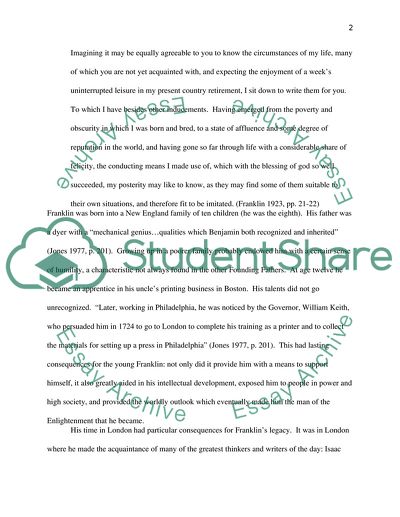Cite this document
(Ben Franklin - Founding Father and Enlightener Research Paper, n.d.)
Ben Franklin - Founding Father and Enlightener Research Paper. Retrieved from https://studentshare.org/biographies/1730748-benjaim-franklin
Ben Franklin - Founding Father and Enlightener Research Paper. Retrieved from https://studentshare.org/biographies/1730748-benjaim-franklin
(Ben Franklin - Founding Father and Enlightener Research Paper)
Ben Franklin - Founding Father and Enlightener Research Paper. https://studentshare.org/biographies/1730748-benjaim-franklin.
Ben Franklin - Founding Father and Enlightener Research Paper. https://studentshare.org/biographies/1730748-benjaim-franklin.
“Ben Franklin - Founding Father and Enlightener Research Paper”, n.d. https://studentshare.org/biographies/1730748-benjaim-franklin.


